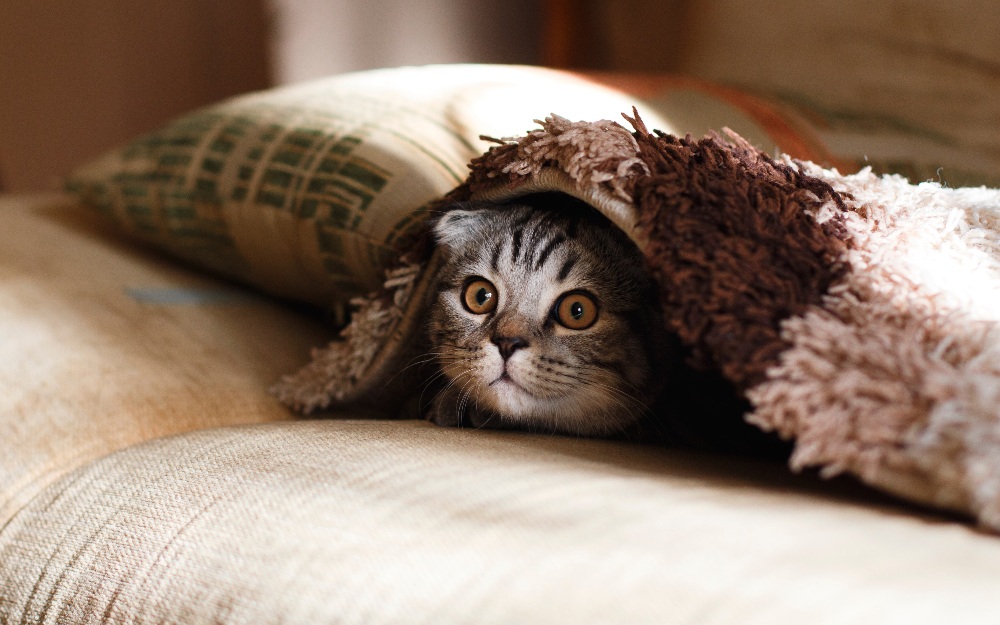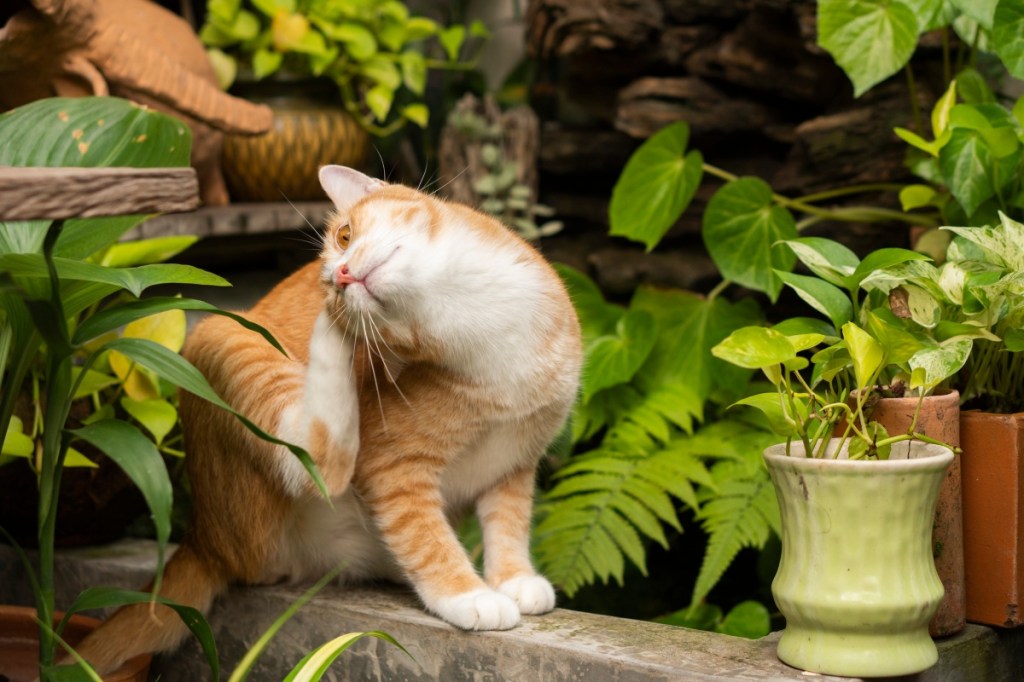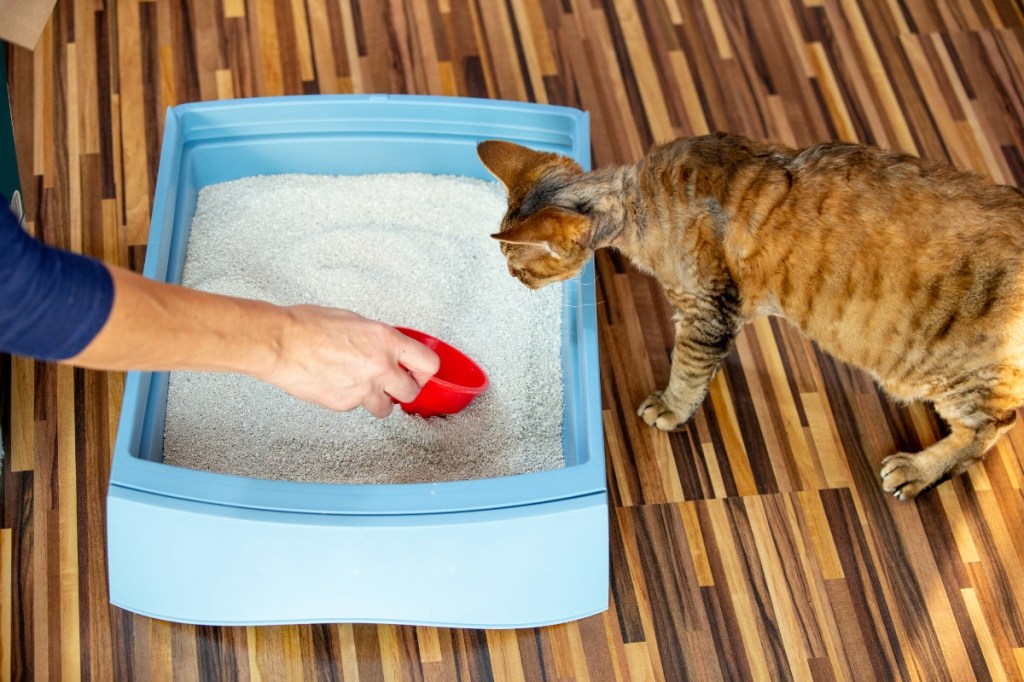Key Takeaways
- A very small number of tigers, lions, and house cats have tested positive with COVID-19.
- Feline coronavirus is not the same as COVID-19.
- Humans can not get feline coronavirus.
- Feline coronavirus symptoms include minor respiratory issues and diarrhea.
- Most cases of feline coronavirus are mild and do not require treatment.
Table of Contents
Updated April 30, 2020:
As the COVID-19 pandemic information changes and evolves, we are committed to being a source of the most up-to-date information for you, our concerned pet parents. Since this article was published discussing the differences between coronaviruses that are commonly seen in cats and the human COVID-19 virus, some new information has come to light. There are now reports of seven wild cats at the Bronx Zoo as well as two house cats testing positive for COVID-19.
Don’t Panic
It is imperative to understand that although a handful of felines have tested positive, there are millions of cats in the US that are not infected with COVID-19.
Five tigers and three African Lions have tested positive for COVID-19 at the Bronx Zoo. They are believed to have been infected by a caretaker who was asymptomatic – which means the person didn’t realize they were infected, but were spreading the virus. The cats that were tested were coughing and found to be positive.
The two house cats that tested positive live in different areas of New York. One of the positive cats did not have known contact with an infected individual. The other cat that tested positive had a pet parent who had tested positive. How did the cat without an infected pet parent become infected? We aren’t sure. However, just like humans can become infected by breathing the aerosolized coronavirus particles emitted from a coughing or sneezing person infected with COVID-19, cats can also breathe those infected particles. If the one cat were exposed through contact with an asymptomatic person (someone infected, and unknowingly spreading the virus while feeling perfectly healthy) or through sharing air with an infected individual via open windows or other means is purely speculation – but you can see how it would be possible. Also, very important, there is still no evidence that these infected cats can pass the virus to other cats or to humans.
What To Do Now: Be Vigilant
Since so few cats have tested positive, the best we can do is continue social distancing from other humans, wash our hands often, and keep track of our feline friends (don’t let them wander around outside or visit neighbors) during the pandemic.
If you have been diagnosed with COVID-19, please try to find someone else in your home or a friend or neighbor to care for your cat until you are well again.
If your cat starts coughing, or if your cat is otherwise acting abnormally, please contact your veterinarian or a veterinary telehealth team to determine if your cat needs veterinary care or diagnostic testing. Some cats suffer from recurrent upper respiratory infections, feline asthma or other conditions which may look similar.
If your cat appears to be struggling to breathe at any time, COVID-19 or not, it is important to bring them to your veterinarian or veterinary emergency facility right away.
Original article:
Feline Coronavirus is Not the Same as COVID-19
Think of coronavirus as a surname or family name. In general, your family shares a last name, but each individual within that family is their own unique person with their own job, likes and dislikes and personality. Coronavirus is a family of viruses, each member of that family acts a little different and has a specific host species they infect.
While COVID-19 can infect humans, hundreds of samples taken from dogs and cats and analyzed at Idexx, the largest veterinary diagnostic laboratory in the country, have found no evidence of COVID-19 causing infection in pets. Humans have several coronaviruses that can infect them. Dogs have their own coronavirus called Canine Coronavirus. Cats also have their own Coronavirus – the Feline Coronavirus. Both canine and feline coronaviruses stay within their own species and do not infect humans.
What is Feline Coronavirus? How Common is it?
Feline Coronavirus is a common virus in cats. What is a virus? It is a microscopic parasite that does not have cells, or organs – all it has is genetic material inside. Coronaviruses have RNA genetic material inside them. When the coronavirus affects host cells, the RNA is inserted into a cell and acts as blueprints that direct the host cell to make new viruses.
In cats, the cells that are affected belong to the GI tract and/or the respiratory tract. A cat will become infected with the virus by fecal-oral transmission (a particle of feces is groomed off of an infected cat, as an example), aerosol transmission (being breathed on, sneezed on or coughed on) or by exposure of the eyes, nose or mouth to the virus through fomites (foh-mites).
Fomites are objects or humans that have gotten virus on them, but are not infected with the virus. Examples include litter boxes, cat toys, cat beds, or the people who care for the cat. When a cat has feline coronavirus affecting their respiratory tract, sneezing, coughing or breathing on or near objects makes those objects (fomites) into places for virus to lay in wait to infect another host cat.
Cats infected with feline coronavirus in the GI may get fecal particles (feces) onto any of the same objects, allowing for spread of the virus to other cats. Feline Coronavirus is more commonly found in multi-cat households and catteries where the cats in close contact can easily infect each other.
Feline Coronavirus Symptoms and Diagnosis
Feline Coronavirus causes relatively minor diarrhea and/or respiratory signs (coughing, sneezing) that are mostly indistinguishable from other minor infectious conditions in cats.
If your cat develops minor diarrhea, a PCR fecal panel performed with your veterinarian can help you to diagnose the cause as feline coronavirus versus many of the other viruses and bacteria that cause diarrhea. If your cat suffers from upper respiratory infections, feline coronavirus may be one of the several infectious organisms contributing to that infection.
Once infected with the virus, cats will start to “shed” the virus within 1 week of getting infected. Think of the term “shed” like a dog or cat sheds fur – basically the virus is waiting on fomites, ready to be spread to other hosts (cats) or objects and surfaces the infected cat comes into contact with. Cats can shed the virus – and therefore can cause illness in others – for months to years after they are infected.
How is Feline Coronavirus Treated?
If your cat experiences mild GI signs or mild respiratory signs, they are unlikely to require treatment. If treatment is pursued for an individual patient needing extra care, the treatments will be aimed at supporting the cat’s hydration and normal body functions and not specifically aimed at killing the virus. Specific feline coronavirus therapies do not exist at this time. It is uncommon for feline coronavirus infection to result in death.
Feline Infectious Peritonitis
Less than 1% of the cats infected with feline coronavirus develop a condition called Feline Infectious Peritonitis. This is a more severe condition that does not pass to other cats, dogs or humans. FIP is most commonly seen in cats less than 18 months of age and in cats older than 12. Cats may develop a fever that comes and goes and is unresponsive to antibiotics. They may also have low energy, unexplained weight loss and/or a failure to grow. Some FIP cats will develop an accumulation of fluid in their chest or abdomen.
Purebred cats are more susceptible to developing FIP – so adopt from a shelter instead of buying from a breeder whenever possible. FIP is a very difficult condition to diagnose, and up until recently, was nearly 100% fatal. Recent developments in treatments for this condition are showing promise and may be available to veterinarians in the near future.
Can Humans Get Feline Coronavirus?
No! Humans can not be infected with feline coronavirus.







